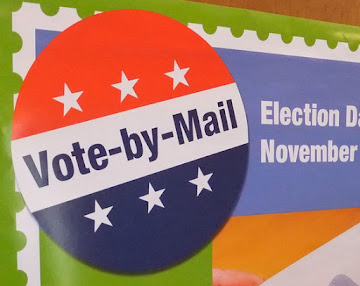In short: Foreign enemies of the United States will try to influence Americans' opinions and Americans' trust in the voting process.
Russia, China, and Iran are the most active countries trying to meddle, but they're working at cross purposes.
 |
| America's counterintelligence honcho assures the nation that foreign nations can't mess up the voting system -- not very much, anyhow. |
CHINA is tired of Donald Trump's whiplash policies, and prefers the more predictable Biden. (This part of the press release is worded with almost comical delicacy.) China wants the U.S. to quit bucking its actions -- specifically, its takeover of Hong Kong, its attempted takeover of the South China Sea, and its efforts to dominate the 5G market.
China's regime does not like Americans treating TikTok as a Trojan horse, nor was it happy to see its consulate closed in Houston. China’s efforts focus on pressuring US politicians to support Chinese policies, and to cancel out criticism.
IRAN wants to get rid of Trump and his heavy-handed treatment of the Iranian government. It's trying to influence the election by manipulating Americans on-line.
RUSSIA wants Donald Trump for a second term. Of course. Trump seems to trust Vladimir Putin the way a child trusts Daddy.
Russia's tactic is to badmouth Joe Biden, who supported Ukraine's anti-Putin sentiments when he was Vice President to Barack Obama.
This year, Ukraine's pro-Trump lawmaker, Andriy Derkach, has made claims about Biden’s and his son Hunter's supposed corruption and attempts to put down the Democratic Party. Meanwhile, Russian operatives manipulate American opinions on-line to help Trump's candidacy.
Russia has also been sniffing around the voting process and accessing local voter rolls. Evanina says, however, that foreign actors can't manipulate the votes themselves without extensive effort, and even then, it would be "difficult for our adversaries to interfere with or manipulate voting results at scale." Reassuring, huh?
More detail, from Evanista's July 24 release: "Today, we see our adversaries seeking to compromise the private communications of U.S. political campaigns, candidates and other political targets. Our adversaries also seek to compromise our election infrastructure, and we continue to monitor malicious cyber actors trying to gain access to U.S. state and federal networks, including those responsible for managing elections. However, the diversity of election systems among the states, multiple checks and redundancies in those systems, and post-election auditing all make it extraordinarily difficult for foreign adversaries to broadly disrupt or change vote tallies without detection."
Do you think that we need a comparison of how well and how much the different countries are weaseling through the wires? (That was Democrats' criticism of the disclosures.) Should we ask how well the United States is doing in defending the country against foreign influence? Do you think that candidates are enlisting foreign help to win elections, as Trump allegedly did before the 2016 elections?
"rule-41-act" by Electronic_Frontier_Foundation is licensed under CC BY 2.0





